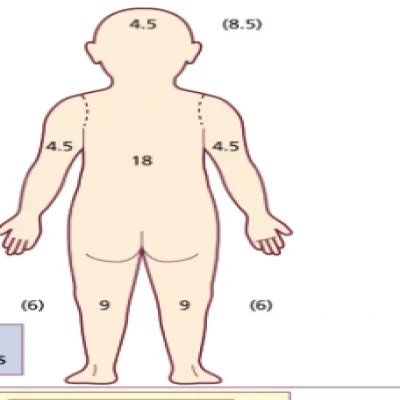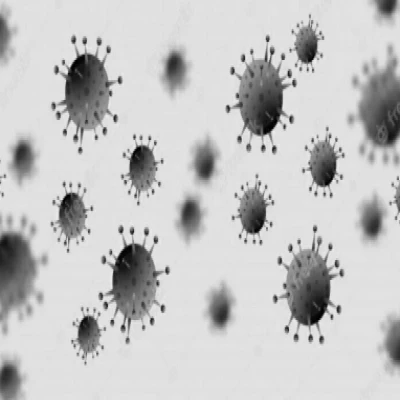مجلات علمية

Hong Kong influenza 1997 outbreak was the first-time scientists found that avian flu disease can be transmitted from birds to humans due to a genetic mutation.
Avian flu (Avian Influenza) is a viral disease that is caused by the influenza virus type A (H5N1) and it was infecting wild birds and domestic birds specifically and it was transmitted from bird to bird only, but unfortunately it became able to infect people by transmitting from infected birds to humans causing severe respiratory symptoms and even death.
The Start of Hong Kong Influenza 1997 Outbreak:
Influenza 1997 started In May 1997 in Hong Kong, when a three years old boy had been hospitalized with severe symptoms (cough, fever, and respiratory distress) his condition became worse, then he died to be considered as the first victim of influenza 1997 outbreak.
Investigations showed that the boy had been around infected chickens and got the infection from them.
People who worked in chicken or poultry markets or farms and people who were in direct contact with birds were tested for avian flu (H5N1 virus) immediately and some of them gave positive results to the virus.
Other people who weren't in contact directly with chickens such as neighbors, healthcare staff, and laboratory technicians gave some positive results too!!
What Happened After That Through the Influenza 1997 Outbreak?
By November 1997, 18 cases were recorded. 6 of them had died in Hong Kong so the government decided to slaughter all the chickens and other domestic birds in Hong Kong to prevent the spread of the disease.
They killed more than 1.6 million birds and this stopped the spread of infection occasionally.
Did these procedures Help to Stop Influenza 1997 Outbreak?
No unfortunately between 1997 and 2005 due to a genetic mutation the H5N1 virus became extraordinarily lethal and it was the cause of 62 people and more than 140 million bird deaths in Asia.
And in 2005 H5N1 suddenly spread to Europe too.
What Were the Main Symptoms of Avian Flu During the Influenza 1997 Outback?
Symptoms of avian flu are not different from any flu symptoms it includes:
Cough
Breath difficulty
Fever
Diarrhea
Headache
Sore throat
Runny nose
How The Avian Flu Can Be Transmitted to Humans?
As noticed in influenza 1997 outbreak humans can get the infection through direct contact with infected bird secretions such as saliva, nasal secretions, and infected bird feces.
The disease also can infect people by consuming undercooked eggs or poultry from infected birds.
Avian Flu Risk Factors:
As the infected bird does not die immediately after getting the infection so it continues in spreading the virus via its secretions and feces.
And that was the main cause of the Hong Kong influenza 1997 outbreak in which birds in poultry markets spread the infection before it died.
The H5N1 virus can survive on surfaces for as long as ten days so anyone may catch the infection through touching these contaminated surfaces.
Some people may be at higher risk than others for example:
-People in contact with infected birds.
-People work in poultry farms or markets.
-People who travel to affected areas.
-People who consume undercooked eggs or poultry.
-Healthcare workers who contact infected people.
Diagnosis of Avian Flu:
According to the CDC approval, there is a specific test for avian flu this test called (influenza A/H5 virus real-time RT-PCR primer and probe set) this test can give results within only four hours but unfortunately this test is not available everywhere so doctors depend on other tests to diagnose avian flu such as:
-White blood cells count with differential
-Auscultation
-X-ray for chest.
-Nasopharyngeal swab culture.
Avian Flu Treatment:
Treatment of avian flu may vary according to the symptoms the patient has.
Antiviral Drugs :
Some antiviral drugs such as Tamiflu (oseltamivir) and Relenza (zanamivir) if taken within 48 hours after first symptoms appearing may help reduce the disease severity.
Other people who are in close contact with patients may be advised to take these antiviral drugs as prophylaxis.
Some antiviral drugs shouldn't be used for the treatment of avian flu such as amantadine and rimantadine. That's because the human form of avian flu can develop resistance against these drugs.
Mechanical ventilation:
If the patient develops respiratory difficulties with severe infection doctors may place him on a breathing machine.
Avian Flu Complications:
The complications of avian flu depend mainly on the severity of symptoms and the type of virus causing the infection.
The H5N1 virus is considered to have a higher mortality rate than other types of the avian flu virus.
The most common complications of avian flu are:
Pneumonia
Sepsis
Organ failure
Respiratory failure
Prevention Of Avian Flu:
-Avoid traveling to infected areas.
-Avoid being in poultry markets.
-Avoid direct contact with infected birds or people.
-Avoid consuming undercooked poultry or eggs.
-Washing hands regularly.
Doctors also recommend people to get the influenza vaccine, because if they get both human and avian flu at the same time it may generate a new type of flu which may be fatal.
In April 2007 FDA approved the first vaccine against the H5N1 virus. This vaccine can be used in persons between 18 to 64 years of age who are at high risk of infection.
This vaccine also can be used if the H5N1 virus becomes capable of spreading from person to person; it also can be used during pandemics.






